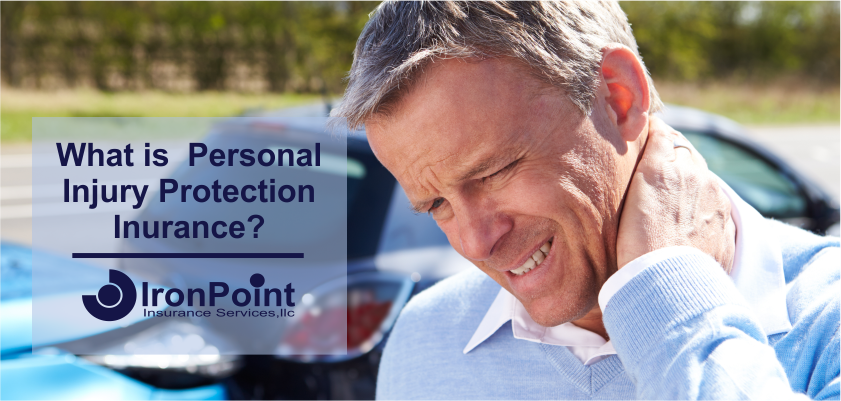What is Personal Injury Protection Insurance?

Personal injury protection insurance or PIP covers your medical bills if you’re injured in an accident. Personal Injury protection covers you no matter who is at fault. For this reason, it is frequently referred to as no-fault insurance.
In some ways, personal injury protection insurance is like health insurance for car accidents. However, it frequently goes beyond your physical injuries and rehabilitation expenses, and may even cover lost wages, house cleaning, yard work, and other non-medical expenses incurred as a result of a car accident.
In some states, personal injury protection insurance is mandatory, while others make it optional or do not offer this coverage.
What common things are covered by Personal Insurance Protection insurance?
Personal injury protection is going to be different from state to state, so you’ll want to consult an insurance agent to get the specific coverages offered where you live. However, below are some of the common things you’ll find in PIP coverages:
- Medical expenses for drivers insured on your policy. This may even cover you if hit by a car while walking or riding a bike.
- Wage loss if you are unable to work as a result of injuries sustained by a car accident.
- Household services (including childcare, house cleaning, yard work, etc.)
- Disability and rehabilitation expenses.
- Death benefits are paid to family members if the accident results in a fatality.
Generally speaking, your personal injury protection coverage is for medical expenses for you or other drivers listed as covered on your auto insurance policy. Depending on the state where you live, you may get additional benefits that include non-medical expenses (eg. wages, household services, disability, etc.). Frequently, these coverages will apply to you, your passengers, and family members who live in your household.
A big exception is property damage. Your personal injury protection is not meant for property and will not provide coverage for property damage that results from a car accident.
If you live in a state where PIP is mandatory, the coverage is automatically included in your policy at the time of purchase. You may need to select limits. Other states may allow you to select PIP coverage, including the amount of coverage you want.
If you have health insurance, it’s important to note that personal injury protection benefits are typically considered primary. This means they payout before your medical insurance if you are presenting a claim. This includes Medicare, Medicaid, or any policy issued under the Affordable Care Act.
Find out how PIP coverage works in your state
If you need to better understand how PIP works in your state you should speak with a licensed insurance agent. You can call an IronPoint agent at 1-877-334-7646 and they’ll guide you through all your options. If you want to see how much PIP may cost you can get a car insurance quote online, and we’ll show all your options.
Pro tips for selecting the right amount or adding personal injury insurance
Do you have health insurance?: If you want to manage your car insurance costs and have great health insurance, you may be able to consider selecting a lower amount of PIP coverage. This is especially true if you have a low health insurance deductible. If PIP is mandatory in your state, you may not have this option.
Understand which coverage pays first (“Primary”): Personal injury protection is typically primary and pays benefits before your health insurance when your injuries are part of a car accident claim. This may help you understand how much, if any, of your health insurance deductible you have to pay.
Do you have a health insurance deductible?: If your state makes PIP optional, a smart strategy may be to purchase enough coverage to pay your medical deductible. This may become more important if you have a high-deductible health insurance plan. In most PIP states, there is no deductible.
Do you have life insurance?: If you don’t carry life insurance, then PIP can sometimes help your surviving family members cover unforeseen expenses if you’re in a fatal car accident.
Could you lose wages if you have to miss work?: This consideration is especially important if you have a job that requires physical labor, or you cannot afford to miss time if your injuries limit your ability to work. If either of these conditions may apply to you, consider adding PIP or increasing your limits to provide adequate lost wages coverage as available.
What if your state doesn’t offer Personal Injury Protection insurance?
Personal injury protection insurance is not offered or mandatory in all states. In fact, many states do not offer PIP and you can select “medical payments” coverage as an alternative. Medical payments coverage typically does not cover lost wages but will cover funeral expenses and hospital bills for you, others covered on your policy, and passengers in your car during an accident. Like PIP, medical payments will be paid out regardless of fault. The amount of medical payment coverage you can purchase, or the minimum amount offered will vary from state to state and among insurance companies. It is fair to say, however, that generally, you will see limits offered that are less than $10,000 or less, so medical payments are firmly a supplement to traditional health or life insurance.
Frequently, consumers think of medical payment coverage as a way to pay health insurance deductibles, copayments, or other out-of-pocket expenses related to an auto accident. You do have the flexibility to decide how and to whom apply your medical payments benefits when they are for covered items.
Let’s Get Started
Select the way you want to start your quote.







